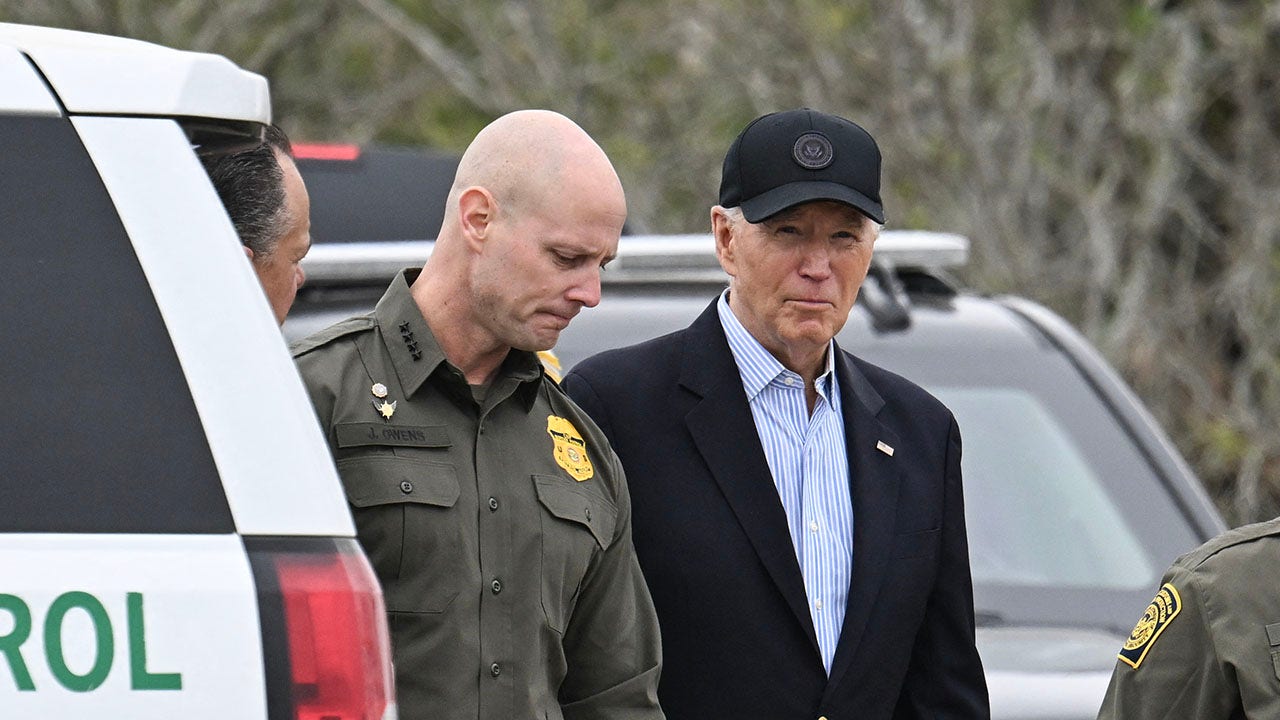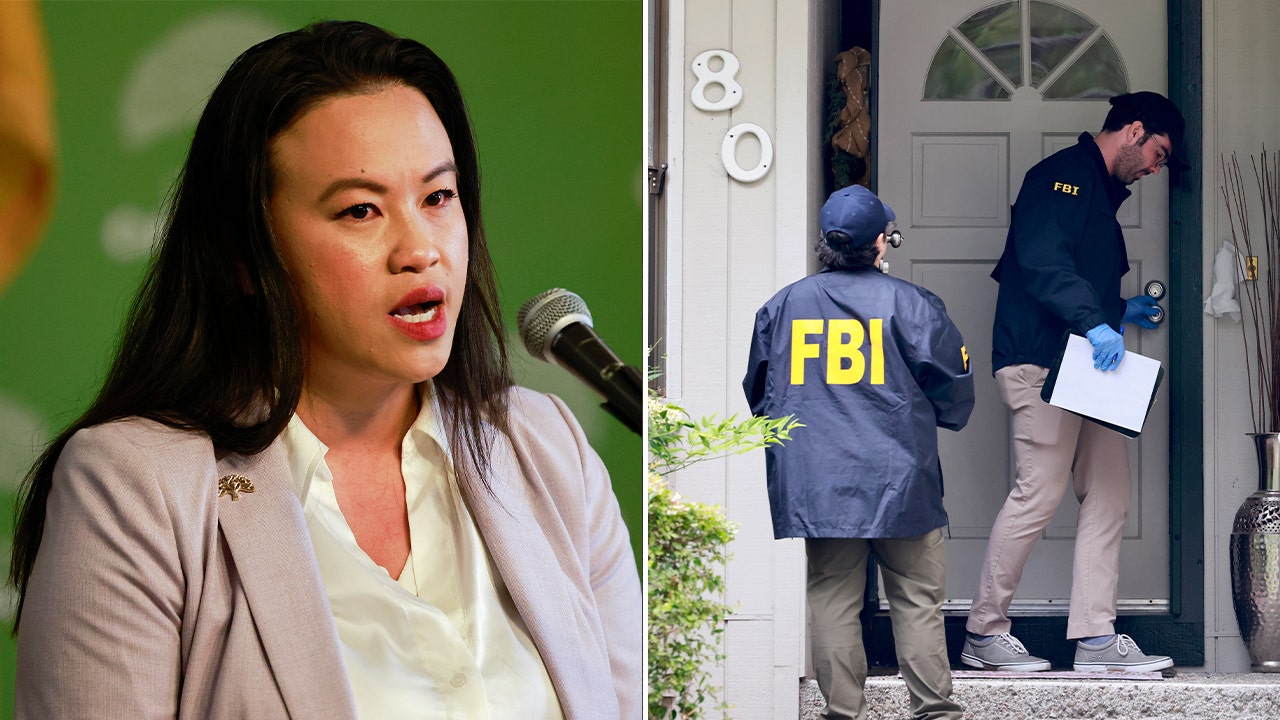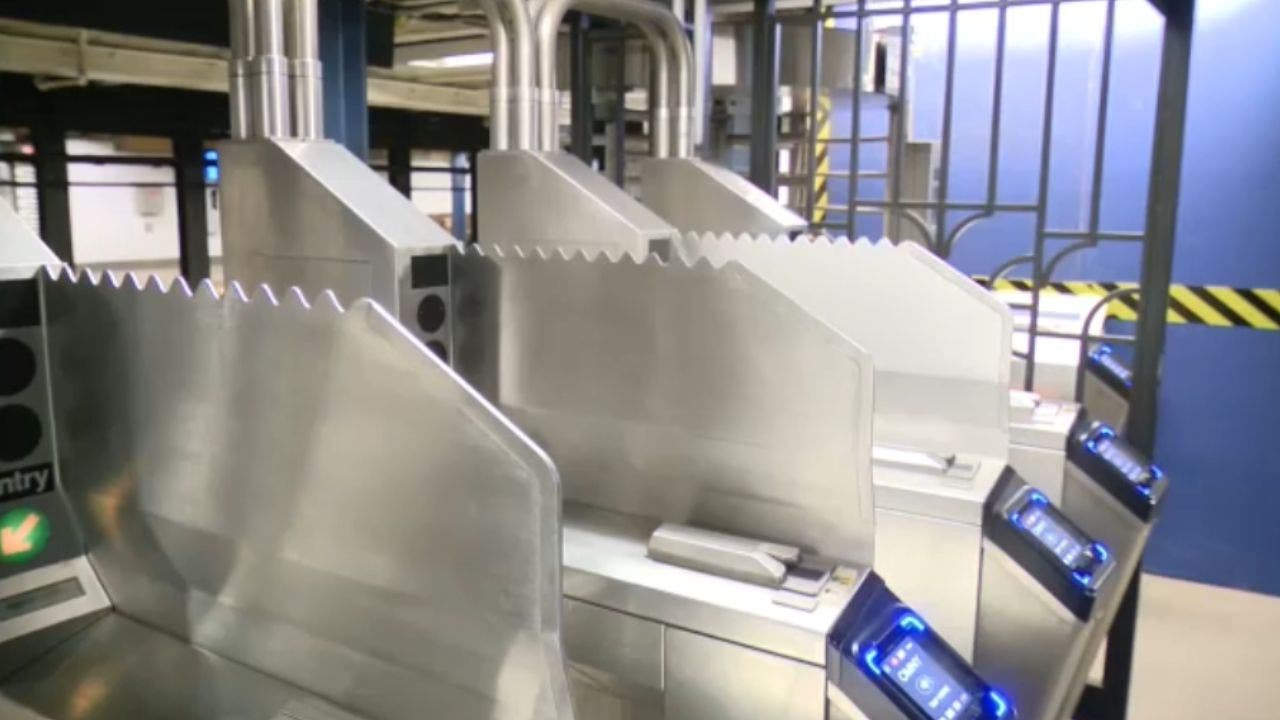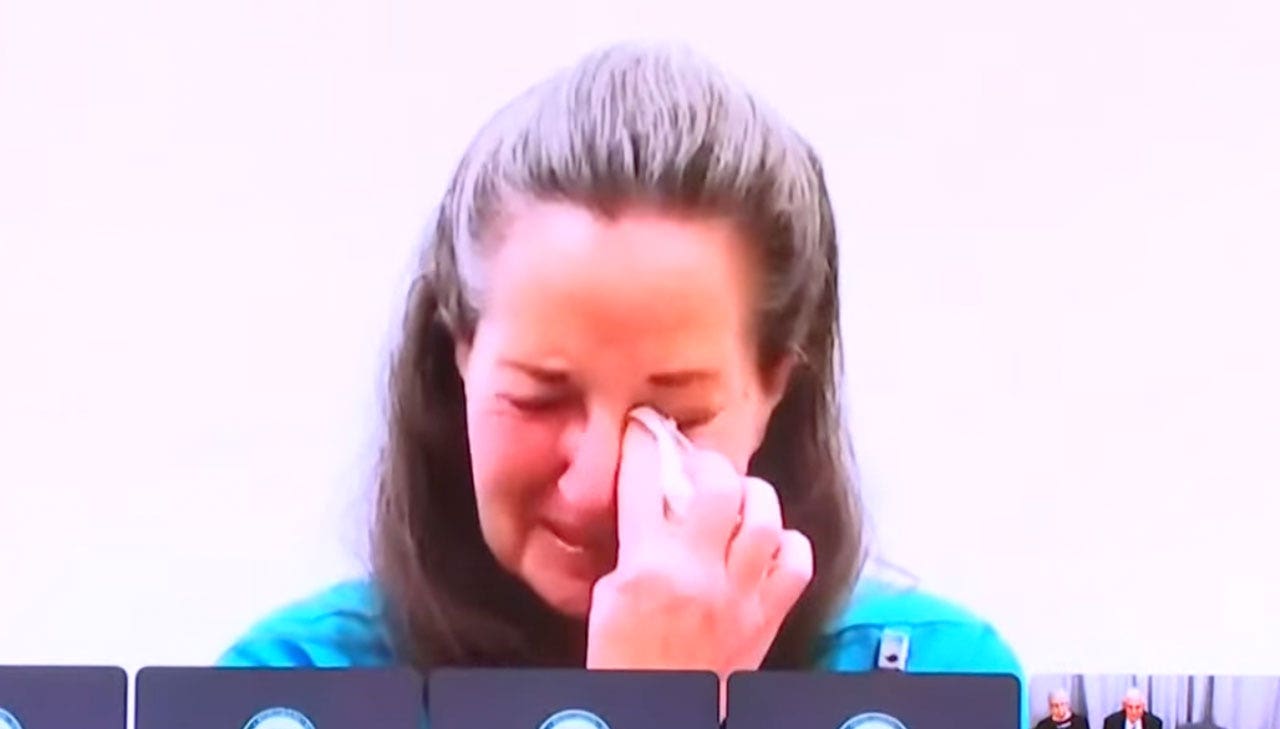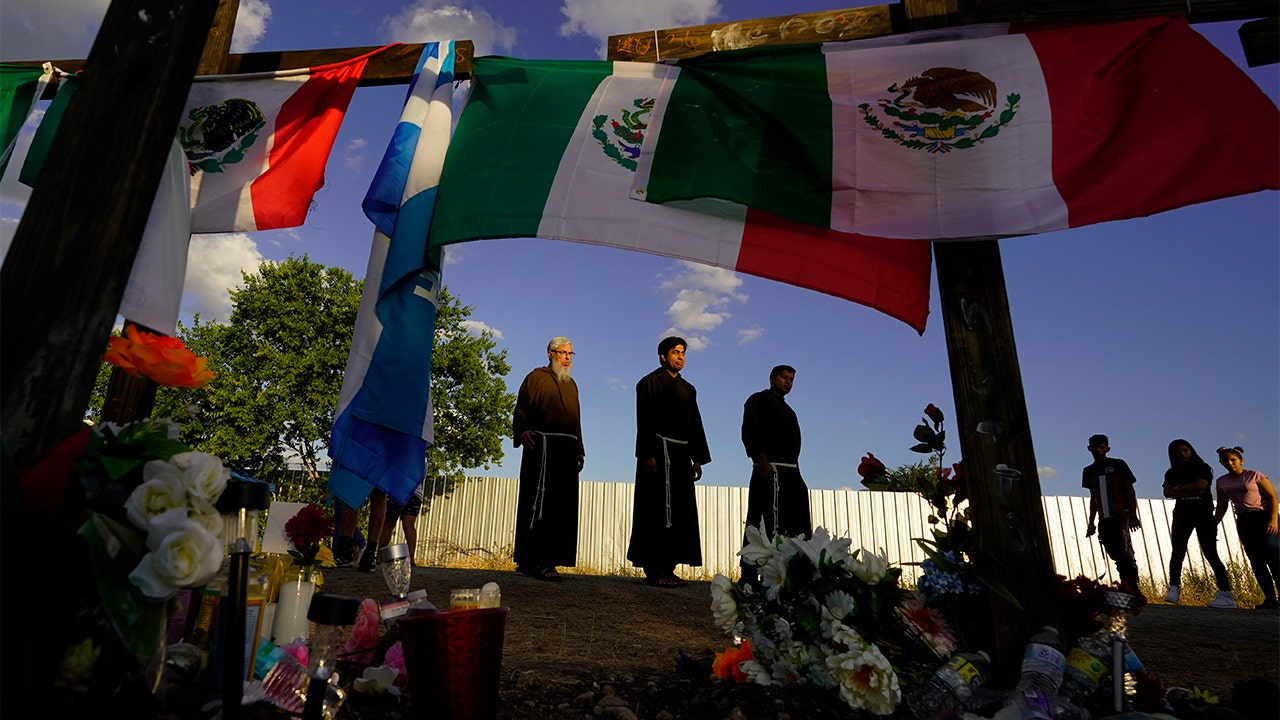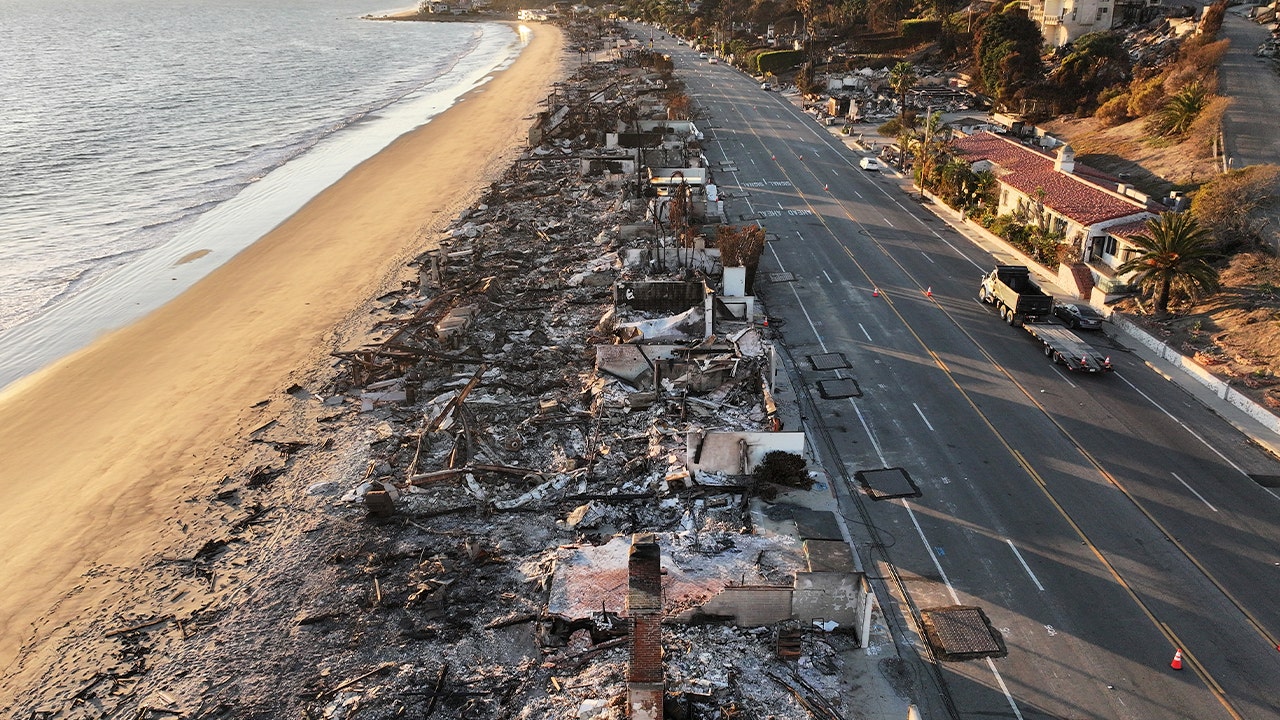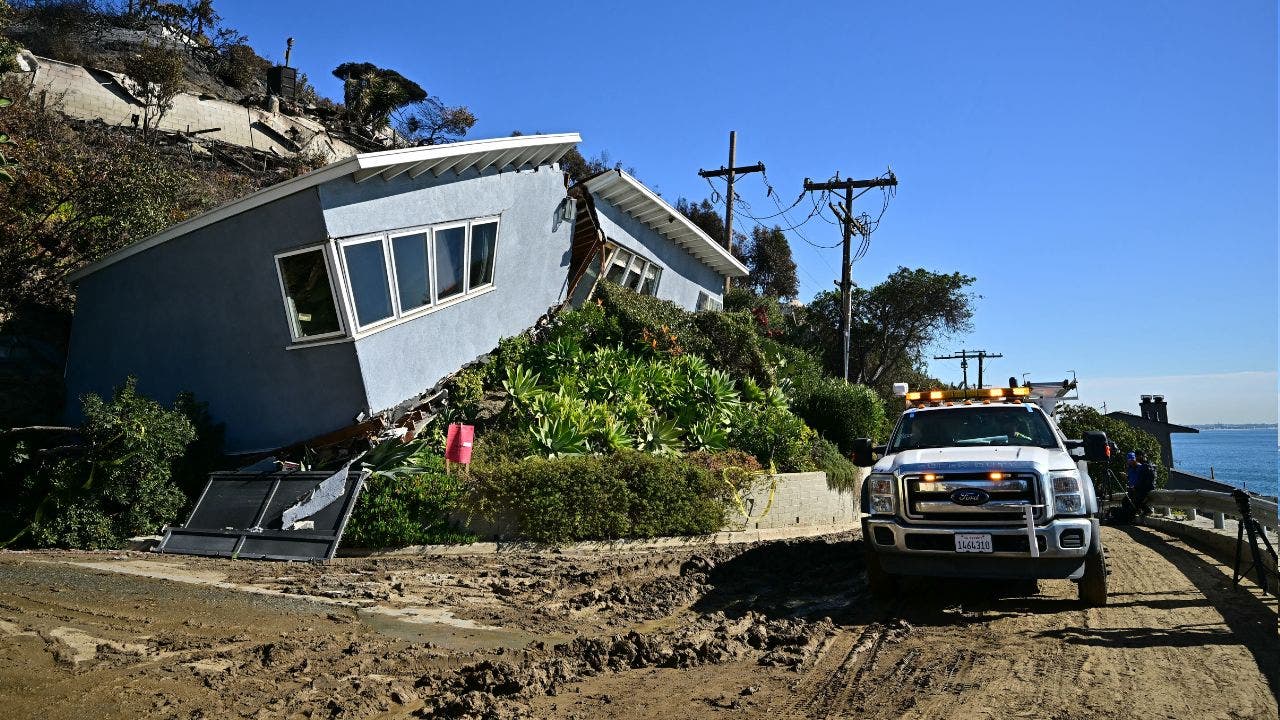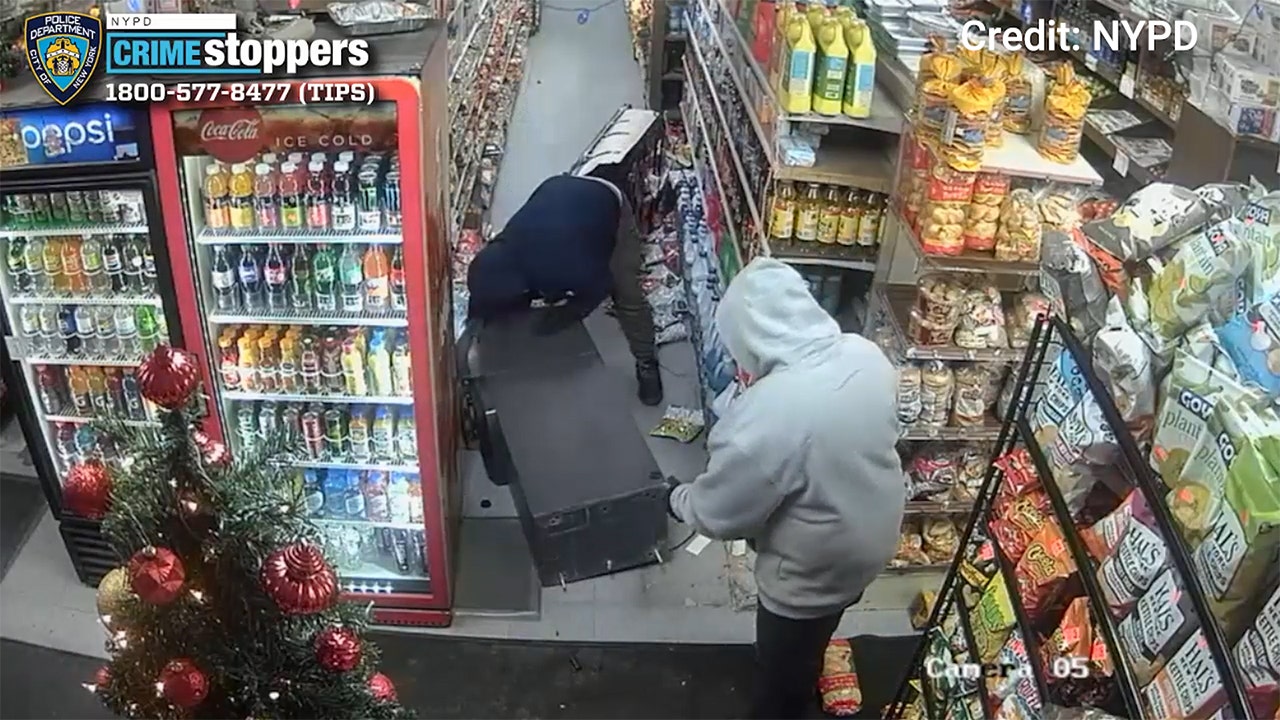New York Gov. Kathy Hochul has announced a new $77 million plan to clamp down on subway crime, while the MTA has also begun installing “spikes” on some of its turnstiles to stop fare evaders who cost the transit agency hundreds of millions of dollars a year in lost revenue.
The new spike features consist of metal sheets with sharp edges installed on guardrails between turnstiles that are intended to stop fare beaters from using the gate handrails for leverage when jumping.
But the spikes are not very sharp, and evaders are still able to place their hands on top of the spikes and jump over them — or simply duck underneath the bars. The spikes have so far been installed in Manhattan’s Lexington Avenue 59th Street Station, which services the N, R, W, 4, 5 and 6 trains.
New subway turnstile “spikes” are pictured in New York City. (FOX 5 NEW YORK)
NYC MAN CHARGED WITH ATTEMPTED MURDER AFTER ALLEGEDLY SHOVING COMMUTER IN PATH OF SUBWAY
Skipping payment is notoriously easy, particularly at subway stations that do not have high turnstiles. One rider told the New York Post the new spikes were “silly and foolish” and a waste of money.
Additionally, the MTA also spends around $1 million a month on private unarmed security guards to deter fare beaters, per Fox 5, but the guards have no authority to apprehend those who dodge payment.
Hochul’s fare evader plan focuses on installing more modern high-rise turnstiles at 40 stations, and it’s unclear if the spike rollout at 59th Street is part of this plan.
Hochul said fare evaders cost the MTA around $700 million per year in lost revenue. About $500 million of that is via the subway system, while the remainder is attributed to the bus system.
“I say it’s time to crack down on the shameless, fare evaders who are just so brazen they just walk through and others who are paying, they feel like, why should I bother,” Hochul said at a Grand Central press conference on Thursday announcing her $77 million plan.
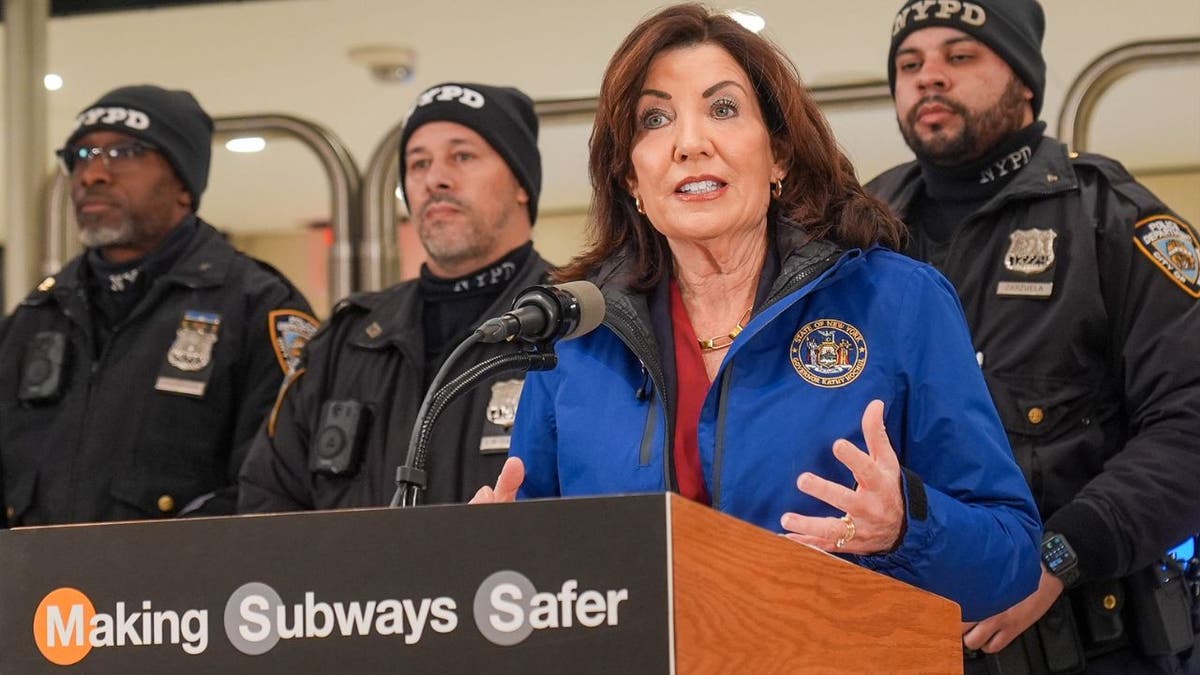
New York Governor Kathy Hochul unveils details of her plan to have hundreds of cops stationed overnight on subways in New York City on January 16, 2025. (Selcuk Acar/Anadolu via Getty Images)
NY GOVERNOR TOUTS INCREASED SURVEILLANCE AMID MTA MAYHEM: CAMERAS IN ‘EVERY SINGLE SUBWAY CAR’
Overall crime in the city is down, Hochul said, but recent high-profile incidents on the transit system have struck fear into everyday strangers.
A Guatemalan illegal immigrant has been charged with setting a woman on fire and burning her to death on a subway train last month, while on New Year’s Eve a man was pushed in front of a moving train but miraculously survived.
There’s been a surge of violence on subways in recent weeks and Hochul said 750 more police officers will patrol the subway system on top of the 2,500 already assigned. An additional 300 will be assigned to the trains onboard between 9 p.m. and 5 a.m. Those figures are on top of the estimated 1,000 National Guard troops who’ve been assigned to the subway system.
“So basically this means we’ve doubled the number of law enforcement personnel on the New York City subway system in one year,” Hochul said.
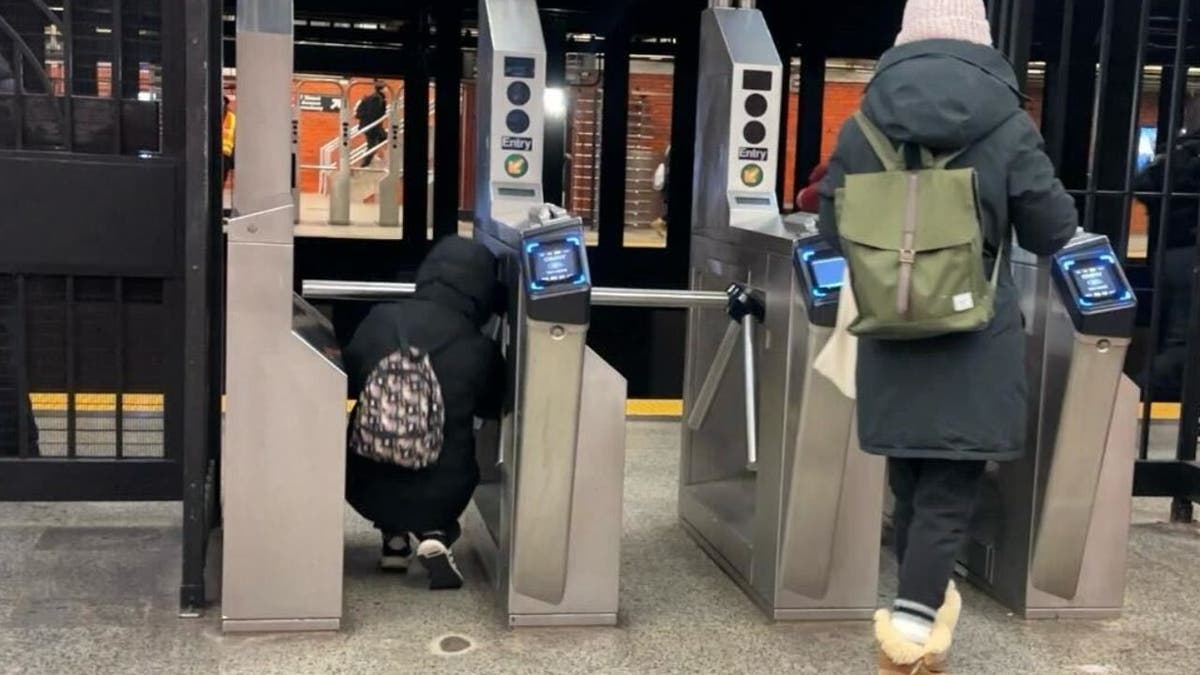
A subway fare evader ducks under a turnstile, left, while another rider swipes to pay, right. (Michael Dorgan/Fox News Digital)
CLICK HERE TO GET THE FOX NEWS APP
New subway edge barriers will also be installed on platforms at more than 100 additional stations by the end of 2025 to stop straphangers from falling or being pushed onto tracks.
The Governor also announced funding to install LED lighting in all subway stations throughout the system in order to increase visibility throughout the stations.
“Let’s just get back to basics, they served their purpose,” Hochil said of the barriers. “They’re there. If someone wants to stand behind them while the train is approaching and it gives you that sense of security that every New Yorker deserves to have.
Hochul also said a 24/7 “Welcome Center” near end-of-line stations will be expanded to create spaces for homeless people.


